Welcome to the colourful world of LEGO, where imagination and creativity come to life! While LEGO may be a toy company known for its iconic plastic bricks, it had set its sights on a brighter and more sustainable future, way back in 2012.
Through various partnerships with organisations like the World Wildlife Fund, LEGO has been responsible for materials and investing in reducing its carbon footprint. In 2018, they introduced a line of products made from sugarcane-based bioplastics, and began sourcing all their manufacturing energy from wind power.
Sustainability and DEI: A Paradigm Shift in Business
LEGO has shown the world that even plastic can be sustainable, inspiring young minds to care for the planet.
This is an apt example of the need for changing ideas and needs in today’s fast-paced world. Companies and organisations are waking up to the significance of sustainability and the integration of Diversity, Equity, and Inclusion (DEI) in their cultures. Sustainability and DEI have become more than just fancy buzzwords; they, now, have the power to revolutionise the way businesses operate, leading to long-term success, positive social impact, and a more equitable and sustainable future.
Seen as a way of business that goes beyond short-term profitability; sustainability encompasses the responsibility of businesses to operate in ways that not only safeguards the environment, but also promotes and ensures social well-being and economic stability. It has the power to transform company cultures, leading to not only long-term success but also a positive social impact.
When companies prioritize sustainability as a core value, it influences every aspect of their operations, from supply chain management to employee engagement and customer relationships. By adopting sustainable practices, companies can reduce their environmental footprint, minimize waste, and promote responsible resource management. This not only benefits the planet but also improves operational efficiency and cost savings. Moreover, integrating sustainability into company cultures fosters a sense of purpose and shared values among employees, leading to increased job satisfaction, loyalty, and productivity.
The Market’s Shift Towards Sustainability
Customers, too, are increasingly drawn to sustainable brands, creating new market opportunities and driving growth. Sustainable companies also enjoy enhanced reputation and brand value, attracting investors and fostering long-term partnerships. Ultimately, by embracing sustainability as a core value, companies can create a positive impact on the environment, society, and their bottom line.
Patagonia’s Sustainable Commitment: Leading by Example
One company that has exemplified this commitment is Patagonia, the outdoor clothing retailer. Patagonia’s mission statement, “We’re in business to save our home planet,” encapsulates their dedication to sustainability.
The company actively seeks to reduce its ecological footprint through its “Footprint Chronicles”, invests in regenerative agriculture projects via its “Regenerative Organic Certification” program, and promotes fair trade practices among other initiatives.
By integrating sustainability into their company culture, Patagonia has not only attracted environmentally conscious customers but has also fostered employee pride and loyalty, while making a positive impact towards the environment. It has been able to influence the industry standards by creating a benchmark as well as enhance its brand reputation.
Championing Diversity, Equity, and Inclusion
Another term, DEI (Diversity, Equity, and Inclusion) has become as essential as sustainability in today’s world, particularly for companies and organizations. It means creating a workplace environment where individuals from diverse backgrounds feel valued, empowered, and represented. It involves fostering a culture of respect, equal opportunities, and fair treatment for all employees, regardless of their race, gender, ethnicity, age, sexual orientation, or other dimensions of diversity.
By prioritizing DEI, companies can harness the power of diverse perspectives and talents, leading to increased innovation, creativity, and problem-solving. Moreover, DEI helps companies build stronger relationships with customers and stakeholders by demonstrating a commitment to social responsibility and inclusivity.
The integration of Diversity, Equity, and Inclusion (DEI) in companies and organisations has become increasingly important in today’s diverse and interconnected world. DEI goes beyond just meeting legal requirements or ticking boxes; it is about creating a culture that values and embraces differences, ensuring equal opportunities, and fostering a sense of belonging for all individuals. Companies that prioritize DEI have the potential to drive innovation, improve employee engagement and retention, enhance customer satisfaction, and create a more equitable and inclusive society. Ultimately, integrating DEI into company practices and policies not only benefits employees but also contributes to sustainable business growth and a more just and harmonious society.
DEI in Action: Salesforce
Salesforce, a leading cloud computing company, serves as an inspiring example of DEI integration. The company has implemented various programs and initiatives to promote diversity and inclusion in the workplace. One notable initiative is the “Pathfinder Training Program,” which aims to train and provide employment opportunities to underrepresented groups in the tech industry.
By actively seeking to diversify its workforce, Salesforce is not only addressing inequalities but also harnessing the power of diverse perspectives, experiences, and talents to drive innovation and better serve its customers. Additionally, Salesforce has established employee resource groups focused on different identities and experiences, creating a supportive and inclusive environment where employees can connect, learn, and collaborate.
These efforts have enhanced Salesforce’s reputation, strengthened relationships with stakeholders, and positioned them as a leader in the tech industry. Overall, their commitment to DEI has created a more inclusive workplace and a competitive advantage in today’s diverse marketplace.
To ensure the successful integration of DEI, organisations must go beyond token gestures and embrace a holistic approach. This means implementing fair hiring practices, providing equal opportunities for advancement and growth, creating inclusive policies and practices, fostering open dialogue and communication, and continuously evaluating and improving DEI efforts. It is important to recognize that DEI is an ongoing journey that requires commitment, continuous learning, and adaptability to evolving societal needs and expectations.
Danone’s Unified Vision
Danone, a multinational food company, has adopted a holistic approach to sustainability and DEI. By aligning its business objectives with the United Nations Sustainable Development Goals (SDGs), Danone aims to address global challenges while fostering diversity and inclusion.
The company has set ambitious targets, including becoming carbon-neutral and ensuring gender balance in leadership positions by 2025. Danone’s focus on sustainability and DEI has not only enhanced its reputation but has also attracted top talent and created a more resilient and innovative organization.
Paving the Way for Change: Interface
Interface, a global leader in modular flooring, provides another compelling example of sustainability and DEI integration.
The company’s commitment to sustainability is exemplified by its “Mission Zero” initiative, aiming to eliminate any negative impact on the environment by 2020. Interface has also prioritized diversity and inclusion, recognizing that diverse teams lead to more creative and effective problem-solving.
By embracing sustainability and DEI, Interface has achieved significant cost savings, reduced waste, and created a culture of collaboration and respect.
In the end, sustainability and DEI go hand in hand, as they both strive for a more inclusive and equitable future. By embracing diversity, equity, and inclusion, companies can tap into a wide range of perspectives and experiences, fostering innovation and creativity in their sustainability efforts. At the same time, a sustainable business model promotes social and environmental justice, creating opportunities for marginalized communities and ensuring a more equitable distribution of resources. Together, sustainability and DEI form a powerful partnership that drives positive change, transforms company cultures, and paves the way for a more sustainable and inclusive world.

